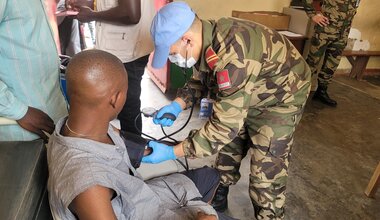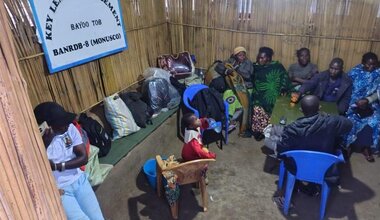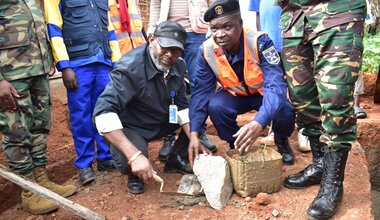Jean-Pierre Lacroix: "MONUSCO will maintain a presence in northern Tanganyika"
"In the northern part of Tanganyika, MONUSCO will maintain a presence to work closely with FARDC so as to provide the appropriate security response to the violence that persists in this part of the province."
UN Under-Secretary-General for Peace Operations Jean-Pierre Lacroix made this statement during his working visit to Tanganyika from October 21 to 22, 2021.
According to him, "the good quality of collaboration between MONUSCO, the provincial authorities and civil society made it possible to advance stabilization in a large part of the province", although "not everywhere".
The purpose of his twenty-four-hour mission to Kalemie was indeed to meet with provincial authorities, civil society as well as MONUSCO staff with a view to the withdrawal of the UN Mission from Tanganyika on June 30, 2022.
Mr. Lacroix was accompanied by a delegation made up of the Special Representative of the UN Secretary-General in the DRC and head of MONUSCO, Bintou Keita, the Deputy Special Representative in charge of operations, Khassim Diagne, the Deputy Special Representative, humanitarian coordinator, David McLachlan-Karr, and several senior officials from MONUSCO's military and police components as well as the integrated operational team.
About the transition process
On October 22, 2021, in the provincial governorate, Jean-Pierre Lacroix had a working session with the provincial authorities.
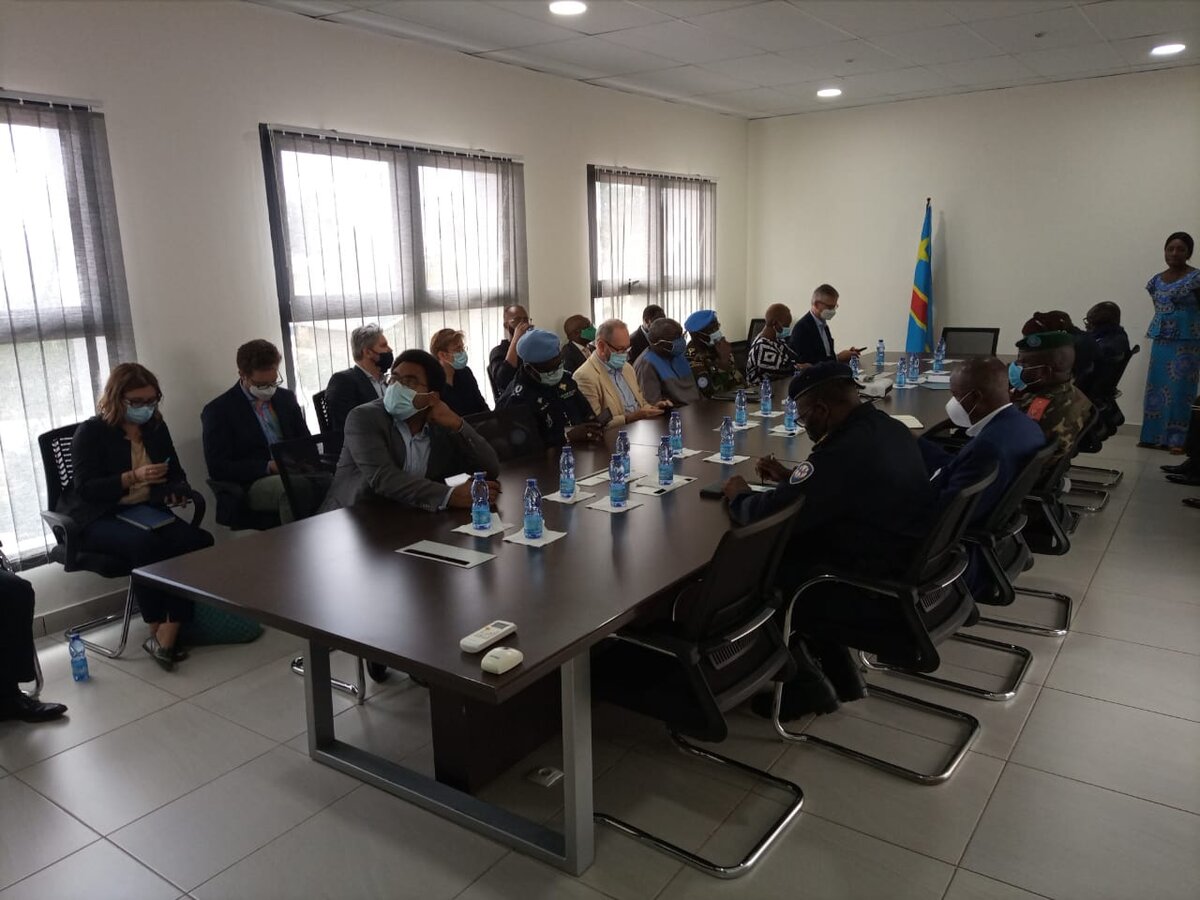
Chaired by the provincial Minister of the Interior representing the governor of Tanganyika, Dieudonné Kanoma, this meeting aimed to assess what was achieved there; take stock of the transition process and discuss the priorities on which the efforts of both parties should focus.
"These priorities revolve around capacity-building for the State in the area of justice, support for the security forces and FARDC, but also support for reconciliation efforts and dialogue between communities for which MONUSCO is fully committed and it is also a priority expressed by the authorities and civil society”, said Mr. Lacroix.
The Deputy Secretary General also discussed with the provincial authorities the development priorities, with the forthcoming establishment of a UNDP office in Kalemie, the situation of women and the imperative need for their involvement in the transition process.
The provincial Interior Minister Dieudonné Kamona expressed the provincial government's gratitude to the United Nations for the support received in the pacification of Tanganyika province. He also indicated the provincial authorities’s readiness to continue to work with MONUSCO in the framework of the implementation and successful completion of the transition process. "With the restoration of peace, the province should immediately launch its development phase," he declared.
A premature withdrawal, according to civil society
At MONUSCO headquarters, the Under-Secretary-General for Peace Operations and the delegation met ten members of the civil society, including 6 women, to discuss MONUSCO transition process.
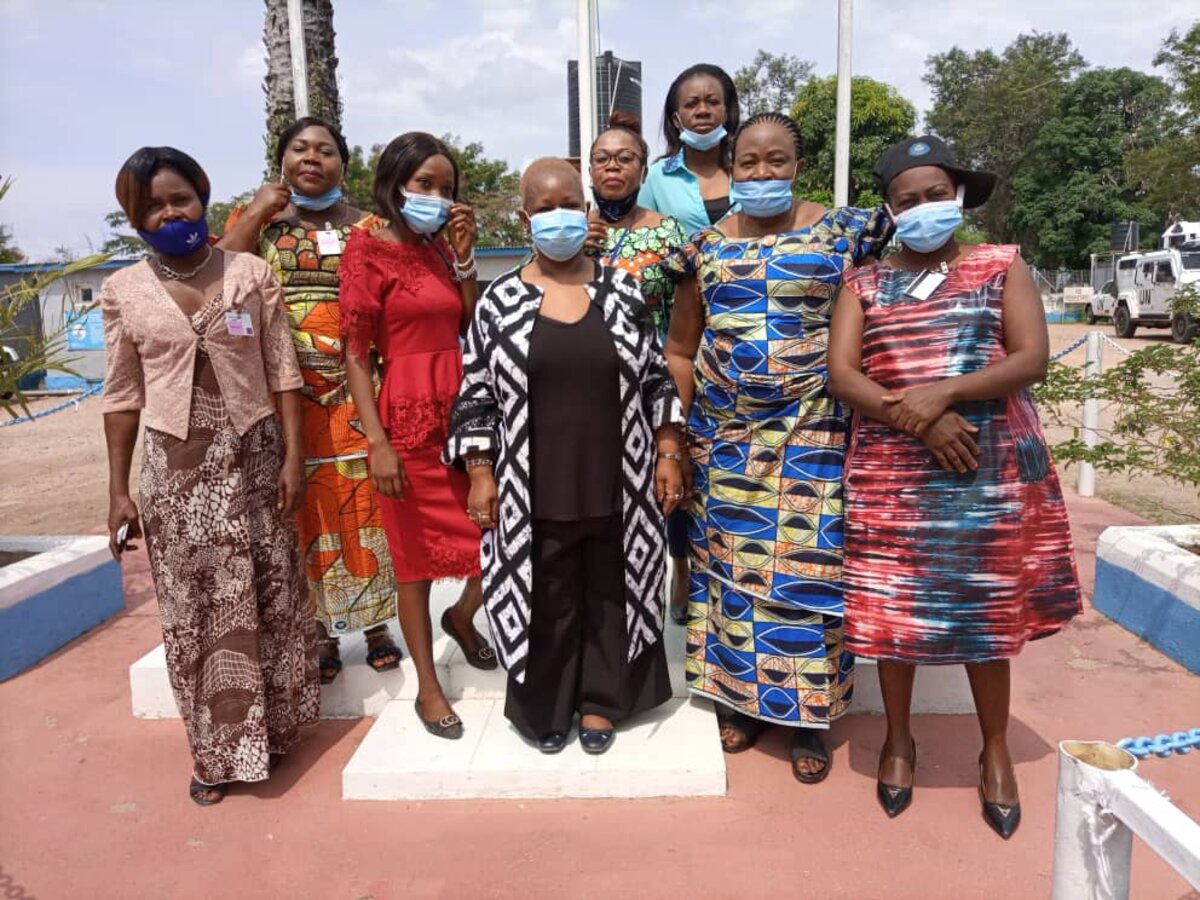
Representatives of local civil society congratulated MONUSCO Kalemie for the technical support, guidance and supervision received, which made it possible, among other things, to depoliticize the work of the civil society in Tanganyika by facilitating the development of a thematic approach emphasizing civil protection and stabilization, as well as the drafting of a complete mapping of civil society organizations in Tanganyika.
In addition, they asked Mr. Lacroix to advocate for the engagement and active involvement of civil society in areas related to MONUSCO's transition in Tanganyika.
The local civil society believes MONUSCO should further strengthen its action in four specific areas; in particular the neutralization of armed groups and the creation of a security environment conducive to the peaceful return of the internally displaced persons to their localities; the operationalization of DDRC-S in Tanganyika with competent leaders at the provincial, territorial and local levels; support for strengthening local conflict resolution mechanisms, including women's and youth associations, and, lastly, support for strengthening the rule of law and judicial institutions in Tanganyika.
According to Anaclet Kabamba, civil society coordinator in Congo, the presence of MONUSCO in Tanganyika is still necessary, referring to the armed groups’ activism in some areas of Nyunzu and Bendera territories. If the latter welcomes the transition plan without enthusiasm, he believes MONUSCO’s exit from Tanganyika should be done on a case-by-case basis.
Christine Medi of the Tanganyika Women's Network, for her part, praised the actions and all the work done by MONUSCO to structure civil society and furthermore in the organization and promotion of women.
"We now know how to take care of ourselves," she said, even though she was worried about the security aspects. She hoped before the withdrawal and in particular during the transition phase, MONUSCO would continue providing capacity building for women with a view to the development of the province.
 UN
UN United Nations Peacekeeping
United Nations Peacekeeping




